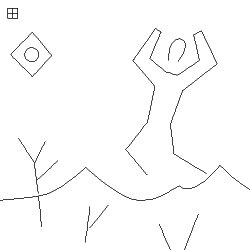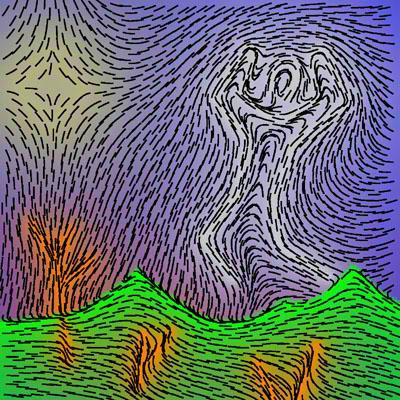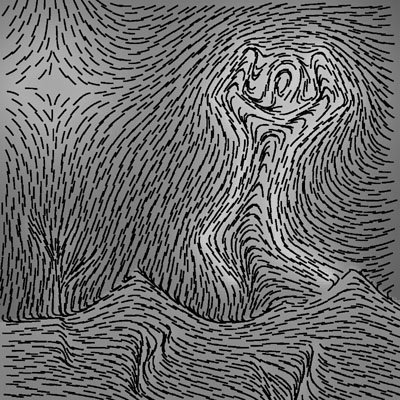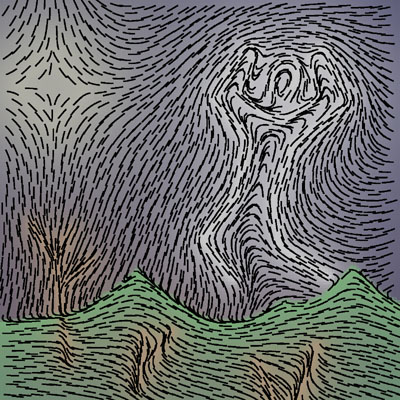
Now the colored mountains looked right. The time of the First Image was nigh. I did a quick pen sketch of a human figure dancing -- some idea of the Fool, although I didn't want to start with an actual Tarot card. (Lest I be tempted to include my first experiments in the final Tarot deck.)
I pulled up LayZ, with the mountains, and dropped a large star in the sky. Then a few bare strokes on the ground, representing trees or bushes. (And practice for Wand cards, maybe.) And then I tried putting in the outline of the dancing figure.

Well, it came out more like a person screaming. These human shapes are trickier than I thought, even as virtual stick figures. But my, it rendered up nicely.

I felt it was rather cartoonish, though. On a whim, I converted the image to greyscale...

...and that was much better. Oh my. Yes, that was the effect I'd been hoping for all those months.
I didn't want the color work to go entirely to waste, so I put some options into makeps to adjust the color's saturation and light/dark value. (No doubt those would be handy later, as well, when I wanted to go from video display to printed output.) With the color turned most of the way down, I had a reasonable compromise:

The vectors flowed the way I wanted on their own, but I found that I had to adjust the coefficients on everything very carefully. The vector influence of the human had to balance against the influence of the star; and similarly for the color, and so on. If I left all those influences at their default levels, something was always drowning out something else.
So the first thing I learned was that I'd be spending an awful lot of time adjusting those numbers. And I'd have to adjust them as I went. It would be foolhardy to add all the objects and then try adjusting everything at the same time. I'd have to add one, balance it, add, balance, rinse, repeat.